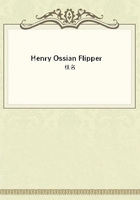
第27章
Formerly in yearling camp the corporals were all "acting sergeants." They were so acting in the absence of the de facto sergeants. These corporals got the idea into their heads that to retain their appointments they had to do a certain amount of "skinning," and often "skins" were more fancied than real. This was a rather sad condition of affairs. Plebes would find their demerits accumulating and become disheartened. It was all due to this unnecessary rigor, and "being military,"which some of the yearling corporals affected. No one bears, or rather did bear, such a reputation as the yearling corporal. As such he was disliked by everybody, and plebes have frequently fought them for their unmanly treatment. This, however, was. It is no more. We have no yearling corporals, and plebes fare better generally than ever before.
Not because all yearling corporals thus subserved their ambition by reporting men for little things that might as well have been overlooked, did they get this bad reputation, but rather because with it they coupled the severest hazing, and sometimes even insults. That was unmanly as well as mean. Hazing could be endured, but not always insults.
Whether for this reason or not I cannot say, the authorities now appoint the corporals from the second class, men who are more dignified and courteous in their conduct toward all, and especially toward plebes. The advantages of this system are evident.
One scarcely appreciates cadet life--if such appreciation is possible--till he becomes a yearling. It is not till in yearling camp that a cadet begins to "spoon." Not till then is he permitted to attend the hops, and of course he has but little opportunity to cultivate female society, nor is he expected to do so till then, for to assume any familiarity with the upper classes would be considered rather in advance of his "plebeship's" rights. How then can he--he is little more than a stranger--become acquainted with the fair ones who either dwell at or are visiting West Point. Indeed, knowing "femmes" are quite as prone to haze as the cadets, and most unmercifully cut the unfortunate plebe. Some are also so very haughty: they will admit only first-classmen to their acquaintance and favor.
But Mr. Plebe, having become a yearling finds that the "Mr." is dropped, and that he is allowed all necessary familiarity. He then begins to enjoy his cadetship, a position which for pleasure and happiness has untold advantages, for what woman can resist those glorious buttons? A yearling has another advantage. The furlough class is absent, and the plebes--well, they are "plebes." Sufficient, isn't it? The spooneying must all be done, then, by the first and third classes.
Often a great number of the first class are bachelors, or not inclined to be spooney; and that duty then of course devolves on the more gallant part of that class and the yearlings.
The hop managers of the third class have been mentioned elsewhere. They enjoy peculiar facilities for pleasure, and, where a good selection has been made, do much to dispel the monotony of academic military life. Indeed, they do very much toward inducing others to cultivate a high sense of gallantry and respect for women. The refining influence of female society has greater play, and its good results are inevitable.
But what a wretched existence was mine when all this was denied me! One would be unwilling to believe I had not, from October, 1875, till May, 1876, spoken to a female of any age, and yet it was so. There was no society for me to enjoy--no friends, male or female, for me to visit, or with whom I could have any social intercourse, so absolute was my isolation.* Indeed, Ihad friends who often visited me, but they did so only when the weather was favorable. In the winter season, when nature, usually so attractive, presented nothing to amuse or dispel one's gloom, and when, therefore, something or some one suited for that purpose was so desirable, no one of course visited me. But I will not murmur. I suppose this was but another constituent of that mechanical mixture of ills and anxieties and suspense that characterized my cadet life. At any rate I can console myself in my victory over prejudice, whether that victory be admitted or not. I know I have so lived that they could find in me no fault different from those at least common to themselves, and have thus forced upon their consciences a just and merited recognition whether or not they are disposed to follow conscience and openly accept my claim to their brotherly love.
*I could and did have a pleasant chat every day, more or less, with "Bentz the bugler," the tailor, barber, commissary clerk, the policeman who scrubbed out my room and brought around the mail, the treasurer's clerk, cadets occasionally, and others. The statement made in some of the newspapers, that from one year's end to another I never heard the sound of my own voice, except in the recitation room, is thus seen to be untrue.